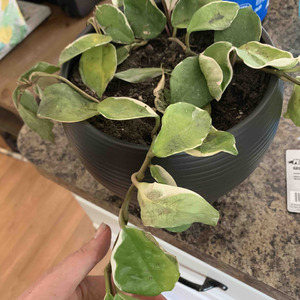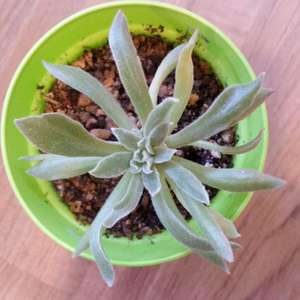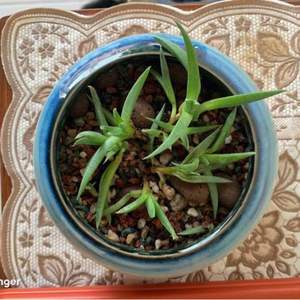
Introduction
Investing is a powerful tool that can help you achieve your financial goals, grow your wealth, and secure your future. While the world of investing may seem complex and intimidating, it's essential to recognize that anyone can learn the fundamentals and begin their journey toward financial success. In this beginner's guide to investing, we'll break down the basics, demystify key concepts, and provide you with a solid foundation to confidently embark on your investment journey.
Understanding the Importance of Investing
Investing is the act of putting your money to work with the expectation of generating a return. While saving is important, investing allows your money to potentially grow over time through the power of compounding. By investing wisely, you can outpace inflation, increase your wealth, and achieve long-term financial goals such as buying a home, funding education or retiring comfortably.
Defining Your Financial Goals
Prior to commencing your investment journey, it is essential to pinpoint your financial objectives. Are you investing for retirement, purchasing a home, or simply growing your wealth? Having clear objectives will help you tailor your investment strategy to align with your aspirations and time horizon.
Starting with an Emergency Fund
Before diving into investments, establish an emergency fund. This safety net should cover three to six months' worth of living expenses and ensure you're financially secure in case of unexpected events. An emergency fund prevents the need to sell investments prematurely, allowing you to stay focused on your long-term goals. Investing is a journey of continuous learning. Familiarize yourself with key investment concepts, such as stocks, bonds, mutual funds, exchange-traded funds (ETFs), and diversification. Online resources, books, courses, and financial news outlets can provide valuable insights into the world of investing.
Understanding Different Investment Options
Stocks:
Stocks represent ownership in a company. When you own a stock, you become a shareholder and have the potential to benefit from the company's growth and profitability. However, stock prices can be volatile, so thorough research is essential.Bonds:
Bonds are debt securities that are issued by enterprises or governments. When you buy a bond, you're essentially lending money in exchange for periodic interest payments and the return of the principal amount when the bond matures.Mutual Funds:
Mutual funds aggregate the capital of many investors and use it to buy a variety of stocks, bonds, and other assets. They offer professional management and diversification, making them a suitable option for beginners.ETFs:
Similar to mutual funds, exchange-traded funds (ETFs) are investment funds that trade on stock exchanges. They offer diversification, flexibility, and typically lower expense ratios compared to mutual funds.
Mitigating Risk Through Diversification
Spreading your investments across several businesses, geographic locations, and asset classes is known as diversification. This strategy reduces the impact of poor performance from any single investment. A well-diversified portfolio is less vulnerable to market fluctuations and enhances your risk-return profile. Your risk tolerance and investment horizon play a crucial role in shaping your investment strategy. Your level of comfort with changes in the value of your investments is referred to as your risk tolerance. The amount of time you intend to hold your investments is known as your investment horizon. Generally, longer investment horizons allow for a greater ability to withstand short-term market volatility.
Investing for the Long Term
Investing is a marathon, not a sprint. Short-term market fluctuations are normal, but they tend to even out over time. Steer clear of forming snap judgments based on transient market patterns. Instead, focus on your long-term financial goals and remain patient.
Starting Early and Being Consistent
The power of compounding makes starting early one of the most valuable strategies in investing. Compounding refers to earning returns not only on your initial investment but also on the returns generated by that investment. Being consistent in your contributions, whether through regular deposits or automatic deductions from your paycheck, amplifies the compounding effect.
Seeking Professional Advice if Needed
If investing seems overwhelming, don't hesitate to seek professional advice. Financial advisors can help you assess your financial situation, define your goals, and create a personalized investment strategy. Look for advisors who are fee-based or fiduciaries, meaning they have a legal obligation to act in your best interests.
Conclusion
While it may seem complex at first, with the right knowledge and strategy, anyone can start investing. Begin with clear goals, educate yourself, choose your investment vehicles wisely, and stay committed to your long-term plan. Over time, you'll see your financial future grow brighter as your investments flourish. Remember that investing is a long-term endeavor, and patience, discipline, and continuous learning are your allies in this journey toward growing your wealth.

In today's interconnected world, professional networking has become a vital aspect of career success. Building and nurturing a strong network can open doors to new opportunities, help you stay updated with industry trends, and provide valuable support and guidance. Whether you're a seasoned professional or just starting your career journey, understanding the benefits of professional networking and developing effective networking skills can significantly enhance your professional growth. In this article, we will explore the multitude of advantages that professional networking offers and provide practical tips on how to build a robust network.
1. Access to Opportunities
One of the primary benefits of professional networking is gaining access to a wide range of opportunities. By expanding your network, you increase the chances of coming across new job openings, collaborations, partnerships, and projects. Opportunities often arise through word-of-mouth referrals and recommendations, and having a strong network increases your visibility and puts you in the right place at the right time to seize these chances for career advancement.2. Industry Insights and Trends
Networking provides an invaluable platform for staying informed about the latest industry insights and trends. By connecting with professionals in your field, you gain access to a wealth of knowledge and experience. Engaging in meaningful conversations and discussions with like-minded individuals allows you to exchange ideas, share best practices, and stay ahead of the curve. This insight can help you adapt to changing industry landscapes and position yourself as a thought leader in your field.3. Learning and Development
Building a strong network means surrounding yourself with professionals who possess diverse skill sets, experiences, and perspectives. Engaging with individuals from different backgrounds and areas of expertise provides opportunities for continuous learning and development. By tapping into the knowledge and expertise of your network, you can broaden your own skill set, acquire new perspectives, and gain insights that can enhance your professional growth.4. Support and Mentorship
Networking allows you to cultivate relationships with mentors, advisors, and peers who can provide guidance and support throughout your career journey. Mentors can offer valuable advice, share their experiences, and help you navigate challenges and obstacles. Peers within your network can serve as a support system, offering encouragement and acting as sounding boards for ideas. Having a strong support network boosts confidence, resilience, and overall career satisfaction.5. Increased Visibility and Personal Branding
Networking provides an opportunity to showcase your expertise and build your personal brand. Actively participating in industry events, conferences, and online communities allows you to establish yourself as a knowledgeable professional in your field. Through networking, you can share your insights, contribute to discussions, and create meaningful connections. This visibility enhances your professional reputation and opens doors to collaboration and leadership opportunities.Building a Strong Network: Tips and Strategies
Now that we've explored the benefits of professional networking, let's discuss some practical tips for building a strong and effective network:1. Be Proactive
Take initiative in expanding your network. Attend industry events, join professional associations, and engage in online communities relevant to your field. Actively seek opportunities to connect with like-minded professionals and initiate conversations.2. Nurture Relationships
Building a strong network is not just about making connections; it's about cultivating relationships. Take the time to follow up with contacts, maintain regular communication, and offer support whenever possible. Building genuine connections based on trust and mutual respect will help foster a strong network.3. Give Before You Receive
Networking is a two-way street. Offer your support, insights, and assistance to others within your network before seeking favors or assistance. Be generous with your knowledge, resources, and connections, as this builds goodwill and strengthens the foundation of your network.4. Utilize Online Platforms
Leverage the power of social media and professional networking platforms to expand your network globally. LinkedIn, Twitter, and industry-specific platforms provide avenues to connect with professionals from various backgrounds and locations.5. Attend Networking Events
Make it a priority to attend networking events, conferences, and seminars in your industry. These events provide valuable opportunities to meet new professionals, engage in conversations, and exchange ideas. Be prepared with your elevator pitch and business cards to leave a lasting impression.6. Be Authentic and Genuine
Authenticity is key to building meaningful connections. Be genuine in your interactions, show interest in others, actively listen, and seek to understand. Building trust and rapport is essential for establishing strong and lasting connections.Conclusion
Professional networking offers a plethora of benefits, including access to opportunities, industry insights, learning and development, support, and increased visibility. By strategically building and nurturing a strong network, you position yourself for professional growth and success. Remember, networking is not just about what you can gain but also about how you can contribute to the success of others. By embracing the art of networking, you can unleash opportunities and create a thriving professional ecosystem.
Australia is a country full of unique landscapes and diverse cultures, making it the perfect destination for a road trip. Whether you're a seasoned traveler or a first-time visitor, this guide will help you plan the ultimate road trip through the heart of Australia.
Plan Your Route
Australia is a vast country, so it's important to plan your route in advance to ensure you make the most of your trip. Consider factors such as the time of year, distance, and road conditions, as well as the must-see attractions along the way. Some popular road trip routes include the iconic East Coast from Sydney to Cairns, the breathtaking Great Ocean Road in Victoria, and the rugged Nullarbor Plain in South Australia.Prepare Your Vehicle
Whether you're driving a rental car or your own vehicle, it's important to prepare it for the long journey ahead. Make sure your vehicle is in good condition, equipped with a reliable GPS, and has all the necessary supplies and equipment, such as a spare tire, jack, and jumper cables.Essential Travel Gear
In addition to preparing your vehicle, it's important to pack essential travel gear to ensure a comfortable and safe road trip. Some must-haves include a first-aid kit, sunscreen, insect repellent, and a reliable cooler for food and drinks.Explore the Outback
Australia's Outback is a unique and rugged landscape that offers a truly unforgettable experience. From the iconic Red Centre and Uluru to the ancient landscapes of the Flinders Ranges, there is plenty to see and explore in this remote and wild region.Visit Uluru
Uluru, also known as Ayers Rock, is one of Australia's most iconic landmarks. This sacred site is located in the heart of the Red Centre and offers a unique cultural experience, with ancient rock art and traditional stories.Explore Kakadu National Park
Kakadu National Park is a World Heritage-listed site that offers a diverse range of landscapes and wildlife, including wetlands, rocky escarpments, and rolling savannas. Take a guided tour to learn about the park's rich cultural history and see the stunning scenery.Enjoy the Coastline
Australia's coastline is dotted with stunning beaches, rugged cliffs, and vibrant coastal towns, making it the perfect place to relax and rejuvenate after exploring the Outback.Soak up the Sun on Bondi Beach
Bondi Beach is one of Australia's most famous beaches and a must-visit for anyone traveling along the East Coast. This iconic stretch of sand offers excellent surf conditions, scenic walks, and vibrant beach culture.Explore the Great Barrier Reef
The Great Barrier Reef is one of the world's greatest natural wonders and a must-see for anyone traveling along Australia's East Coast. Take a snorkeling or diving tour to experience the vibrant coral and marine life, or enjoy the reef from above with a scenic flight.Conclusion
Australia is a vast and diverse country that offers endless opportunities for adventure and exploration. Whether you're exploring the rugged Outback, relaxing on the coast, or discovering the vibrant cities, a road trip through Australia is the ultimate way to experience this amazing country. So, pack your bags, hit the open road, and get ready for an unforgettable journey through the heart of Australia. With its breathtaking landscapes, rich cultural heritage, and diverse wildlife, this road trip is sure to be a once-in-a-lifetime experience. Don't forget to take plenty of photos, try the local cuisine, and talk to the friendly locals to fully immerse yourself in the Australian experience. Happy travels!
The Importance of Networking
In today's highly competitive job market, networking is an essential part of building a successful career. The ability to build and maintain strong professional relationships can help individuals to advance in their careers, find new opportunities, and stay up-to-date with the latest industry trends and developments.Networking is not just about making connections, it's about building relationships. It involves creating a network of contacts who can provide support, advice, and referrals when needed. These relationships can be beneficial for individuals at all stages of their career, from entry-level positions to senior management roles.
Networking Strategies
Networking is a skill that can be learned and developed over time. Here are some strategies to help individuals build their network and establish strong professional relationships:1. Attend Networking Events
Attending networking events is a great way to meet new people and expand your network. These events can include industry conferences, trade shows, and networking groups. When attending networking events, it's important to be prepared with business cards, an elevator pitch, and a clear idea of what you hope to achieve from the event.2. Use Social Media
Social media platforms like LinkedIn and Twitter can be powerful tools for networking. By creating a professional profile and engaging with others in your industry, you can build relationships and stay connected with industry news and trends. When using social media for networking, it's important to be professional, engage in meaningful conversations, and share relevant content.3. Join Professional Organizations
Joining professional organizations is a great way to meet others in your industry and stay up-to-date with industry news and developments. These organizations can include trade associations, industry groups, and local business associations. When joining a professional organization, it's important to actively participate in meetings and events, and to take on leadership roles when possible.4. Volunteer
Volunteering can be a great way to meet new people, gain new skills, and build your network. By volunteering for industry events or community organizations, you can meet others who share your interests and passions. When volunteering, it's important to be reliable, enthusiastic, and professional.5. Follow Up
Following up with new contacts is an essential part of networking. After meeting someone new, be sure to send a follow-up email or message thanking them for their time and expressing your interest in staying in touch. It's also important to stay in touch with existing contacts by periodically reaching out to check in and see how they're doing.Building Professional Relationships
Building strong professional relationships is an important part of networking. Here are some tips for establishing and maintaining strong professional relationships:1. Be Authentic
Authenticity is key when building professional relationships. Be yourself, be honest, and show a genuine interest in others. People can sense when someone is not being genuine, and this can damage relationships in the long run.2. Listen
Listening is a critical skill for building strong professional relationships. Take the time to listen to others and show a genuine interest in their perspectives and opinions. This can help to establish trust and rapport, and can lead to more meaningful and productive relationships.3. Offer Value
Offering value to others is an important part of building professional relationships. This can include sharing information, offering advice or support, or making introductions to others in your network. By offering value, you can establish yourself as a valuable resource and build a reputation as a helpful and supportive colleague.4. Be Reliable
Being reliable is essential for building strong professional relationships. Follow through on your commitments, meet deadlines, and be responsive to others' needs. This can help to establish trust and credibility, and can lead to more opportunities and stronger relationships in the future.5. Nurture Relationships
Building professional relationships takes time and effort. It's important to stay in touch with your network, whether it's through social media, email, or in-person meetings. Take the time to check in with others, offer congratulations on milestones and accomplishments, and be supportive during difficult times.Conclusion
Networking and building professional relationships are essential skills for success in today's job market. By attending networking events, using social media, joining professional organizations, volunteering, and following up with new contacts, individuals can expand their network and build valuable relationships. By being authentic, listening, offering value, being reliable, and nurturing relationships, individuals can establish and maintain strong professional relationships that can benefit them throughout their career.
Happiness and health are more inextricably linked than you would believe. A healthy lifestyle may improve your mood and happiness, while a good mentality can help you live longer and prevent bad habits. You don't have to run marathons to age properly; there are things you can take. Here are five easy things you may do to improve your mood:
Exercise
The term "exercise" sends chills down many people's spines. But it doesn't have to be frightening. Instead, it should be an enjoyable and safe activity that you can do with your friends and family. Exercise is, in fact, one of the most powerful drugs we have...and it is free! Simply walking for 10 minutes at a time may lower your risk of heart disease, diabetes, high blood pressure, and stroke. Exercise may help you lose weight and maintain your bones and muscles in good shape. It may relieve arthritic pain and even aid with anxiety. Experts suggest at least 150 minutes (2 hours and 30 minutes) of moderate-intensity physical exercise each week. That equates to 30 minutes every day, five days a week.Eat Correctly
We all eat on a daily basis, but we don't always eat well. A well-balanced diet is another important aspect of good aging. Good eating, like exercise, may lower your risk of heart disease, diabetes, high blood pressure, and stroke. Experts advise us to consume fruits and vegetables every day and to minimize meals heavy in fat, cholesterol, and salt. Seniors should also make sure they are getting enough calcium, vitamin D, and vitamin B12 every day.Do Not Smoke
Smoking significantly raises your risk of heart disease, stroke, and cancer. Fortunately, it is never too late to give up. Even if you've been smoking for a long time, quitting may help you feel better right away and is the single most essential thing you can do to enhance your health. Quitting smoking might be challenging, but if you are ready, aid is available now.Consult Your Doctor
Even if you are feeling terrific, it is still necessary to see your doctor on a regular basis. Several preventative interventions may assist healthy persons in remaining so. Immunizations against influenza, pneumonia, and herpes zoster are recommended by experts for older persons. People who get these injections are less likely to become ill from these illnesses and to end up in the hospital. In addition to vaccines, it is critical to be examined for breast and colon cancer, which may both be diagnosed and treated before they cause illness.Keep in Touch
Growing older may be isolating at times. It is critical to maintain contact with friends, family, and other key individuals in your life. Keeping your mind occupied might help you avoid sadness and dementia. It's either use it or lose it! If you're working and enjoying it, keep doing it. If you are retired, you may help your community by volunteering, taking courses to learn something new, or starting a reading club with some neighbors.
Carin Kreutzer and Leah Buturain Schneider of the USC Leonard Davis School of Gerontology provided Thanksgiving ideas that help both the mind and the body.
Remember to Express Gratitude
Gratitude is beneficial to your health. According to research, it may lower blood pressure, reduce depression, and enhance quality of life.Buturain Schneider, a gerontologist, theologian, and mindful aging specialist at USC, remarked, "Gratitude works."
But, she says, thankfulness is a habit that may be practiced every day of the year, not an emotion.
"You may increase your gratitude consciousness by discussing what you are grateful for or by telling them how much you appreciate them." Expressing this helps us heal gaps, links us to the sacrifices of others, and enables us to perceive plenty rather than scarcity."
Serve Up Solid Partnerships
Recently, social isolation has been identified as potentially more hazardous to health than smoking or obesity. Despite the hassles of travel and the stress of family relationships, Thanksgiving fosters community through fostering shared experiences with family and friends, as well as accepting strangers."Most individuals say they wish to stay healthy until they are 80 years old. People claim that around the age of 80, what counts most is connections," Buturain Schneider added. "The Thanksgiving holiday is a poignant reminder of how sharing a meal with others can bring a feeling of camaraderie and belonging that many individuals, especially older persons, lack in their life."
Offer a Helpful Hand
Many homeless shelters and senior communities are overwhelmed with volunteers to offer Thanksgiving dinners. And, like thankfulness, research suggests that helping others may boost the giver's health."We feel most alive when we use our abilities to benefit others," Buturain Schneider remarked. "The issue is to create time in our life to do this all year so that recipients may show their thanks and get support on more than one occasion."
Body: Make Lunch Your Main Meal
Research is increasingly indicating that it is not simply what we eat, but also when we consume, that is important. Many families eat their Thanksgiving dinner in the afternoon rather than the evening, which is a start in the right direction for all days, according to nutritionist Kreutzer, head of the USC Leonard Davis School's Master of Science in Nutrition, Healthspan, and Longevity program."Our bodies are more effective at burning calories throughout the day while we are active than they are at storing extra calories as fat when we sleep." Front-loading calories allows you to absorb all of those calories well before night, which may help with weight reduction and general health, including managing and avoiding diabetes and obesity."
After Meals, Get Moving
Thanksgiving provides yearly chances to exercise, from local Turkey trots to family flag football games. Moderate daily movement, in addition to a balanced diet, is a proven intervention that may lower the risk for a range of illnesses, including heart disease, cancer, diabetes, and Alzheimer's."Thanksgiving is an excellent time to start incorporating activity into your daily routine." A daily walk or other sort of activity is beneficial to both the body and the mind."
Keep Some Leftovers
Some folks prefer the turkey sandwich on Friday to the main course on Thursday. Whatever you decide, it's critical to distribute the reward. Practicing portion management at each meal helps us avoid eating too much in one sitting."Three to four ounces of protein is plenty for most individuals," Kreutzer says. "Saving food for the following several days helps you to enjoy the meal numerous times and avoids consuming too many calories all at once."

Yes. Companies do employ during the holidays, and not only for temporary help. It is a fallacy to believe that everything grinds to a standstill because the holidays are busy and people are traveling and vacationing. Companies must still create and spend money, employment choices are made, and individuals may even change careers during this time of year. Here are some statistics to think about whether you're searching for a new job or changing jobs this holiday season.
Job Boards Are At Capacity
Have you checked out a job board over the holidays? That should be enough to address your question. There are now hundreds of job vacancies for immediate recruitment. HR managers are always on the lookout for excellent candidates for existing or forthcoming vacancies. During the holidays, they aren't sitting around twiddling their thumbs; instead, they are actively evaluating individuals via LinkedIn and other channels to fill openings.Businesses Have Money To Spend
At the end of the year, a corporation may have additional funds to invest, but it may not. You should not avoid writing applications and cover letters because you believe a firm would not employ you over the holidays. Many businesses pay for end-of-year recruiting so that they have people in place when the new year begins.There Is Less Rivalry
Many individuals are thinking the same things you are, which implies there will be fewer job candidates over the holidays. Take advantage of the lower competition by polishing your executive resume bio for submission. There's a good possibility you'll get an interview you wouldn't have gotten at other times of the year.There Are Several Networking Opportunities
This time of year moves at its own speed, with social gatherings at work, with friends, and with family. These are excellent occasions to network and reconnect with individuals with whom you may have lost touch. If your workload has changed, you may have a chance to spend some time on your LinkedIn profile to ensure it is properly optimized before you start engaging with people online, especially if it has been a while. Plan a coffee date with a former coworker or attend a professional event. Don't skip out on these natural social gatherings over the holidays. Job possibilities may be found in a variety of settings.Temporary Employment Is An Option
Even if the firm you want to work for isn't recruiting right now, you may get your foot in the door with a temporary position. Most temporary executive job openings are the consequence of end-of-year financial worries rather than the Christmas season. Depending on where a company's budget stands, they may not be able to recruit a full-time employee in December, but you will be eligible for full-time work immediately after the New Year begins.Companies Are Always Hiring
There is never a period when businesses are not employing. Typically, a corporation will employ a candidate if the ideal prospect comes into their office. The Christmas season may be slower for job seekers, but it seldom affects whether a firm is recruiting. In fact, some businesses prefer to employ near the end of the year since they know the people that apply will be serious because they are looking for work throughout the holidays. So, choose the finest executive resume writing service and submit your resume.Expert Resume Services is a team of professional executive resume writers that have helped executives just like you get your dream job. Employers don't stop recruiting during the holidays, and we don't stop assisting professionals like you in finding the right match. Please contact us at any time if you need help with your resume, cover letter, LinkedIn profile, or any other area of your vacation job hunt.

If you want to get more energy, there are a lot of things you can do. But if you want a more natural and healthy way to boost your energy, you might be wondering if there are any supplements you can take to help and if they even work.
So, do supplements work?
In this article, I'll talk about whether or not there are supplements that can help you get more energy. I'll also talk about a few vitamins you can take to naturally give you more energy.
Can supplements make you feel more energetic?
Vitamins and minerals are important for the way our bodies work. Vitamins help cells make energy, make DNA, and keep nerves working, which can make you feel less tired both mentally and physically.Getting enough energy will be easier if you don't run out of certain vitamins and minerals. But what are the most important vitamins and minerals? Let's look at the best vitamins and minerals that can give you more energy.
There are vitamins and supplements that may give you more energy
Here are some of the most important vitamins and supplements that may help you feel more energetic.Vitamins
1. Vitamin D
The Journal of Clinical Endocrinology and Metabolism says that muscle fatigue is a common sign of not getting enough vitamin D.Vitamin D isn't in a lot of foods, so if you want to make up for a lack, it might be best to take an oral supplement. Adults up to 70 years old should take 600 IU of Vitamin D per day, and those over 70 should take 800 IU/day. Women who are pregnant or nursing may have different recommendations, so it's best to talk to your doctor before you start taking supplements.
2. Vitamin B12
There are a total of eight B vitamins, and all of them are important for the body. B vitamins are especially important for the way the brain works, including making energy. So, not getting enough of the B vitamins can make you feel tired.Vitamin B12, which is also called cobalamin, is one of the most important B vitamins for energy. Those who are older or who have had surgery to lose weight are especially at risk for Vitamin B12. If this sounds like you, you might want to start taking a Vitamin B supplement to make sure you have enough energy.
Since Vitamin B12 dissolves in water, most people think it's safe to take more of it. If you take in more Vitamin B12 than your body needs, you will just pee it out. But if you don't get enough Vitamin B12, your body will store what it needs, which may give you more energy.
3. Iron
People who don't get enough iron have a condition called anemia. Tiredness is one of the most common effects of anemia. The Mayo Clinic says that some groups of people may be more likely to have a lack of iron. Women who are menstruating, vegetarians, people with a disease like celiac disease that makes it hard to absorb iron, and pregnant women are more likely to have anemia.If you want to boost your energy by getting more iron, you might want to eat more iron-rich foods. Some of these foods are meat, eggs, and leafy greens. It's also important to eat enough Vitamin C-rich foods, which can help your body absorb iron better. Broccoli, citrus fruits, and leafy greens are all good sources of Vitamin C.
If you don't think it's possible for you to eat these foods, an iron supplement may be the best way to get more energy. Make sure to talk to your doctor before taking an iron supplement to find out if it is right for you and how much you should take.
Supplements
1. The root of the Ashwagandha plant
Even though there hasn't been as much research on Ashwagandha root, a study published in 2012 in the Indian Journal of Psychological Medicine looked at whether it could boost energy. They found that taking this herb as a supplement cut down on stress, which could lead to more energy overall.Ashwagandha root is becoming more popular, and you can find it more easily than ever at your grocery store or health food store. But it's very important to talk to your primary care doctor before you start taking this supplement to make sure it's right for you.
2. Creatine
More and more people are using creatine, especially people who go to the gym. Creatine is an amino acid, which is a part of a protein's building blocks. Creatine supplements are being used by more and more weightlifters to help them do better in the gym and build muscle.If you are an athlete and you don't have a lot of energy, you might want to take creatine supplements. A study published in the Journal of the International Society of Sports Nutrition found that taking creatine supplements helped people recover faster, stay hydrated better, and avoid sports injuries. Since creatine supplements have been shown to improve athletic performance, it stands to reason that creatine supplements may be good for athletes who are tired.
3. Melatonin
If not getting enough sleep is making you feel tired, melatonin might be the right supplement for you. Even though melatonin does not directly give you more energy, you may still feel better if you take it. This hormone is made by the body and helps with sleep. If you can't sleep or have trouble falling asleep, taking a melatonin supplement at night before bed may help you get a better night's sleep and have more energy during the day.Researchers have found that some groups have lower levels of melatonin secretion, which may make it hard for them to sleep and give them less energy during the day. People with Alzheimer's disease, high blood pressure, type 2 diabetes, certain cancers, or advanced age may be affected.
Most grocery stores and pharmacies sell supplements with melatonin. Melatonin also comes in the form of gummies, which makes it easy and tasty to take.
Conclusions
There are many supplements on the market that claim to help you feel more energetic. But it can be hard to know which supplements will really do what they say they will. Based on the research, it is clear that some supplements may help people who are low on energy by giving them more.As we've talked about, if you want to start taking a supplement to boost your energy, it's very important to talk to your doctor and get their opinion. Not only will they be able to help you figure out how much of each supplement you need, but they will also be able to tell you which supplement is best for you based on your lifestyle and lab results.

Growing things on your balcony adds beauty to an otherwise unappealing area. Additionally, you may complete the following tasks:
-Grow living barriers to reduce noise pollution
Make it more difficult for pests to get your garden. Provide some food for yourself to cut down on your "food miles."
Create a garden on your balcony.
When growing on a balcony, your first concern should be if the balcony can sustain what you're producing. The majority of balconies should be strong enough to support a few pots or beds, but it's a good idea to evaluate your area first before you start filling it with plants.
When a container is laden with soil, water, and a tomato plant, particularly if you have a lot of them, you'd be astonished at how heavy it can get. Instead of placing all of your pots in one spot on your balcony, spread them out. By doing this, the weight distribution will be more evenly distributed, preventing any unpleasant balcony gardening accidents.
Examine the horticultural conditions on your balcony.
Sun
Which way does the balcony on your house face? The ideal balconies are those facing south, although those facing southeast or southwest can also work. And you can still grow plants if your window faces north. All you have to do is change the kinds you plant to ones that like shade.
Shade
Before establishing your garden, Kevin advises checking out the balcony in the morning, afternoon, and evening to observe how the shadows affect the area. When you set up a balcony garden, you often discover that you put the plants in a spot that is shadowed for 80% of the day by an obstruction.
For guidance on where to place your garden, pay attention to how shadow affects your balcony.
Wind
The major concern with balcony gardens is the wind, much more so than with raised beds or containers on the ground. Planting wind-resistant vegetation, like rosemary, is your first choice. Stake your plants firmly and use windscreens to assist break some of the stronger gusts as a second, more adaptable alternative.
Walk outside a few times during the day to check the direction and strength of the wind, similar to monitoring the shade on your balcony. Use pots that can withstand more wind, such terra-cotta ones, if your area experiences a lot of it.
addressing water drainage
The majority of balconies feature drainage holes or are at the very least slanted so that water flows in one direction. The last thing you want to do is irritate a downstairs neighbor by watering the garden every time it rains filthy water on them while you're growing on a balcony.
Installing a balcony rain barrel can increase your conservation score if you live in a rainy location. By doing this, you avoid wasting large quantities of runoff and get to irrigate your garden with pure rainwater, which is always better than using municipal water.
Design of a balcony garden
Since every balcony is different, your urban gardening masterpiece should be adapted to your surroundings. Having said that, there are certain fundamental guidelines to adhere to in order to design a balcony garden that is beautiful, useful, and—best of all—productive. Considerations for balconies fall into three categories: the floor, the railing, and everything else. You may use your available space to the fullest extent by thinking in these three tiers.
How to handle the balcony's floor
The floor of your balcony is a terrific place for bigger pots full of plants that require a little room to flourish provided you're ready to give up some foot space. Beans, tomatoes, peppers, eggplants, and other vegetables grow well in pots on the balcony floor. They'll effectively fill up the gap over time.
installing pots on the balcony railing
The most beautiful part of your balcony garden is where your railings are. Since they dangle out the balcony, they get the maximum solar exposure while taking up the least amount of room. Balcony railing planters are one of the most difficult pieces of gardening equipment, despite their usefulness. It might be difficult to know precisely how to connect plants to railings since there are so many different kinds of railings. The last thing you want to do is haphazardly connect a railing planter just to watch it tumble down to the earth below given how much wind balconies are prone to.
Sitting planters
You can often get planters with a bottom that is just that size if your rails are a regular dimension. If you want to choose a plug-and-play solution, these are fantastic possibilities. Simply fill them with dirt, put them in pots, and they'll begin to grow. These may not be the greatest option if your balcony experiences a lot of wind since they can fly off, particularly as the soil becomes dry and the planter becomes lighter.
planters with screws on top
Although they lack a notched bottom, these varieties are identical to sit-on-tops. These work well with wood since they screw right into the railing.
planters that attach
They feature a hook design to attach around the railing and are the most popular kind of railing planters. The planter then leans on the edge of the railing while straining against its own weight. If you are certain that the design will match your railing, they are excellent choices.
It might be difficult to first choose which railing style would go with your balcony since there are so many variations on this design. Compare the width of your fence to the dimensions of the planter box's hook or connection.
simplifying balcony garden maintenance
Balcony gardening is appealing since it's a simple process to get started with, but with the following advice, it's a breeze.
not seeds, but seedlings
If you purchase seedlings from a nearby nursery and simply transfer them into your balcony garden, it is simpler to get your garden off to a good start. If you want to exercise your gardening skills, starting seeds is undoubtedly a fun alternative to attempt. However, if you're a novice gardener and want to see results quickly, purchase seeds from a nearby nursery.
Greater container size
The fact that you're growing in pots is the main drawback of balcony gardening. Particularly if you're using terra cotta pots, they dry up rapidly. Choose the biggest containers you can to help offset this and provide your plants with the consistent hydration they need. The soil will be able to store more water and evaporate much more gradually because to the increased volume.
Put self-watering pots to use.
Choosing bigger, self-watering containers is a step up from selecting larger containers. To provide a steady supply of water for the roots of your plants, these containers wick water from a chamber at the bottom of the pot. Large self-watering pots are often available at nurseries or big-box retailers, but you may also make your own following the instructions in Kevin's book. The time you'll save not having to water your plants is definitely worth the additional expense.
For a balcony garden, simple plants
A balcony garden just really needs one thing: nothing that will completely take over the area. For instance, sprawling squash plants wouldn't be the ideal option. However, even squash is feasible. The following list of plants, however, includes several that are more appropriate for enhancing a balcony.
Basil, sage, thyme, oregano, and other herbs
Grassy leaves: Leaf lettuce, kale, spinach, and other vegetables
"Artichoke" and "Silverskin" garlic
"Patio Princess" and "Balcony"
"Green Oak Leaf" and "Black Seeded Simpson" lettuce
Cayenne: "Camelot"
Eggplant: "Bambino" and "Fairy Tale"
Rainbow and Rhubarb varieties of Swiss chard
Beans: "Purple Queen" and "Blue Lake" (pole) (bush)
Watermelon: "Spacemaster 80"
Strawberry: "Seascape" and "Ozark Beauty"



Tha nks















